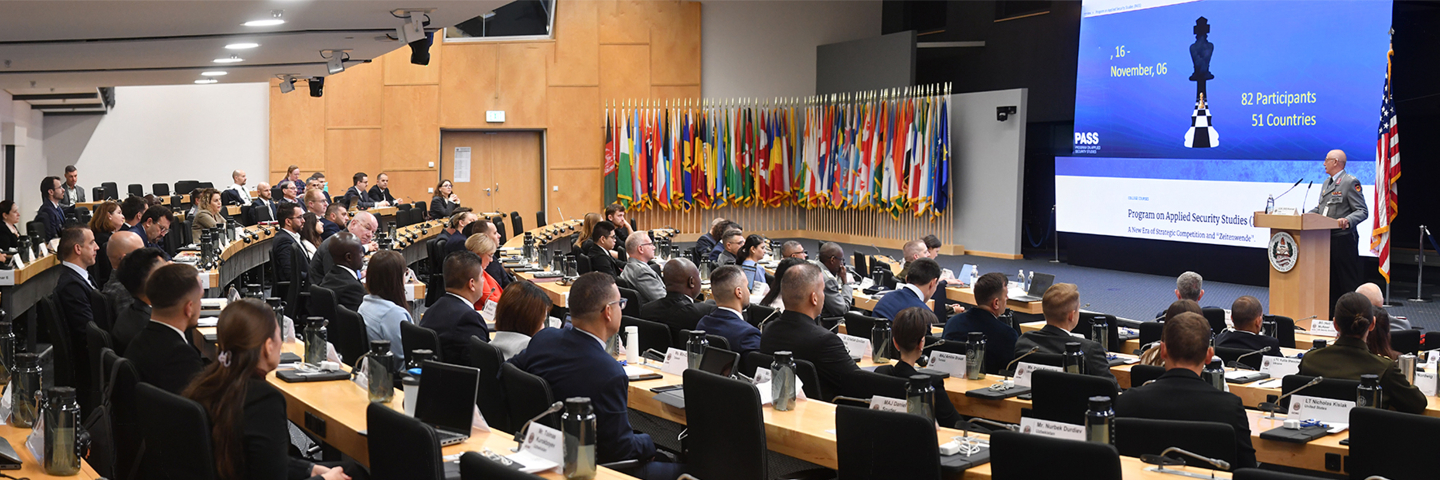
Applying Security Expertise to Strengthen Deterrence in Europe
The Marshall Center welcomed more than 80 participants from 51 countries Sept. 16, 2025, for its flagship Program on Applied Security Studies (PASS).
This year’s theme, “Building Resilience to Strengthen Deterrence and Defense in Europe,” underscores the evolving European defense dynamic as well as the growing need to prepare societies, institutions, and individuals for the demands of strategic competition.
“Our goal with PASS is not only to provide education, but to build a lasting international network of professionals who can work together to meet the challenges of our time,” said German Col. Konrad Lau, PASS course director. “We do not expect you to just learn - we expect you to discuss and bring in your experience. PASS is about exchanging views, broadening horizons, and building friendships and networks across 51 nations.”
To open the program, Marshall Center German Deputy Director Rolf Wagner reflected on how PASS has evolved to remain relevant in a rapidly changing security environment. He underscored both the course’s comprehensive design and the extraordinary experience of the participants.
“The Program on Applied Security Studies reflects our outcomes-based model, shaped by U.S. and German stakeholder input,” Wagner said. “PASS prepares participants to assume greater responsibility in their governments and security and defense institutions, helping them strengthen capabilities, close gaps, and advance interoperability. Through the strength of the Marshall Center network, you will be equipped to do just that.”
He also noted that this year’s PASS participants bring more than 2,400 years of combined professional experience.
“This wealth of knowledge, shared across military, civilian, and academic backgrounds, is what makes PASS such a unique opportunity to learn from one another,” he said.
This year’s program unfolds in four modules. During the baseline module, participants establish a common foundation through lectures and seminars on strategic competition, European-led defense, resilience, and transnational threats. Elective modules allow for deeper exploration of topics such as cyber resilience, illicit markets, legal frameworks, and migration. A tabletop exercise will challenge participants to respond to a simulated crisis in real time, while the final workshop will emphasize strategy development and collaborative problem-solving.
In addition to academic sessions, PASS fosters professional networking through cultural events and group activities.
“This combination of rigorous study and relationship-building is what makes PASS such a powerful experience,” said Yevgeniya Gaber, Ph.D., PASS academic advisor.
As the Marshall Center’s longest-running program, PASS has become a cornerstone of its mission to build common understanding and strengthen transatlantic and global security. In its 84th iteration, PASS brings together rising professionals from ministries of defense, foreign affairs, law enforcement, academia, and civil society. Over the next two months, participants will engage in a graduate-level curriculum designed to strengthen their ability to analyze, understand, and respond to today’s complex security environment.